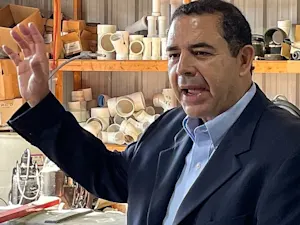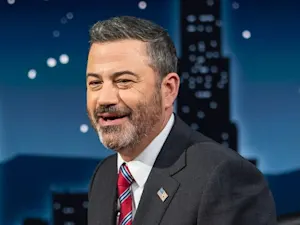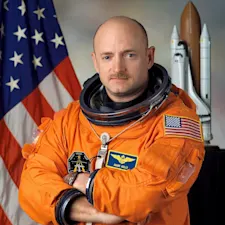
Russia Threatens Nuclear Armageddon Amid Trump's 50-Day Ultimatum
The clock is ticking, and the world can hear it. Russia has rattled the nuclear saber louder than ever after President Donald Trump dropped a jaw-dropping ultimatum: 50 days to end the war in Ukraine or brace for punishing tariffs and a flood of American missiles. This isn't diplomacy as usual. It's a high-wire act where economic threats collide with nuclear warnings, and the stakes couldn't be higher. One wrong move, and this cold standoff could turn red-hot.
Russia's Nuclear Doctrine Tightens Its Grip
Russia's stance has grown increasingly rigid. Sergei Shoigu, head of Russia's Security Council, recently reaffirmed Moscow's right to use nuclear weapons if it faces aggression from Western countries, according to Reuters. This position is based on a revised nuclear doctrine approved by President Vladimir Putin last November, which permits Russia to consider nuclear strikes even in response to conventional attacks that threaten its sovereignty or that of its ally Belarus.
Shoigu's remarks signal a serious escalation: Russia is prepared to deploy its nuclear arsenal not only as a last resort but also as a means to deter or respond to what it perceives as hostile actions. The doctrine's broad language grants Moscow considerable latitude to take symmetric or asymmetric measures to suppress threats, raising the stakes for any military or political moves against it.
Trump's Ultimatum: 50 Days to Peace or Punishment
President Donald Trump delivered a clear ultimatum to Vladimir Putin: negotiate peace in Ukraine within 50 days or face 100% tariffs described as "very severe," as reported by The U.S. Sun.
Trump made the announcement alongside NATO Secretary General Mark Rutte at the White House on July 14, marking a notable shift from his earlier calls for a swift end to the conflict and a reduction in US involvement.
Trump unveiled a $10 billion arsenal of long- and short-range missiles, including Patriot missile systems, largely funded by European and Canadian allies. The plan reportedly involves European countries swapping their existing Patriots for American-made systems, with the cost offset by increased defense spending to 5% of GDP. Trump assured some of these weapons would arrive in Ukraine very soon, signaling a major escalation in military support.
Matthew Whitaker, permanent US Representative to NATO said, "President Trump is a peacemaker, but if you want war, we will arm Ukraine - and Europe will pay for it. It's actually a great step in ultimately bringing this war to a conclusion, to an end," as reported by The U.S. Sun.
Moscow's Defiant Response: Threats of Nuclear Retaliation
The Kremlin quickly dismissed Trump's threats. Russian state TV propagandist Aleksandr Sladkov warned that any US-led missile assault on Russia could trigger the launch of Yars intercontinental ballistic missiles — nuclear weapons with warheads reportedly up to 20 times more powerful than the bomb dropped on Hiroshima.
Sladkov's statements included a warning that Russian forces might respond by turning Ukrainian cities such as Kyiv and Lviv into nuclear wastelands, invoking the devastating imagery of Hiroshima and Nagasaki. He added, "Trump is trying to scare us with missiles, but this is difficult to do... Trump should be scared," as reported by The U.S. Sun. These remarks reflect Moscow's readiness to escalate the conflict to a nuclear level if it feels cornered.
Former Russian president Dmitry Medvedev dismissed Trump's ultimatum as "theatrical," suggesting that Russia remains undeterred by Western pressure, as reported by The U.S. Sun. Kremlin-backed broadcaster Vladimir Solovyov framed the conflict as a broader war with NATO rather than just Ukraine, emphasizing that Russia is already engaged in a "full-scale war" with the Western military alliance.
Uncertainty Surrounds US Military Support
While Trump's public stance appears firm, the details of the weapons package remain unclear. Ukrainian military officials have reportedly expressed uncertainty about whether the promised 17 Patriot systems refer to entire batteries or individual launchers. Given that a full battery, including radar and control systems, costs billions, the scale of the commitment is significant but not fully defined.
Trump's announcement has also drawn criticism from some Republican allies. Georgia Congresswoman Marjorie Taylor Greene accused Trump of breaking a campaign promise by continuing to send billions in weapons to Ukraine, a policy many MAGA supporters oppose. She argued that the base voted for an end to US involvement in foreign wars, highlighting the political balancing act Trump faces between hawkish policy and his populist base, according to The Guardian.
Europe's Role and the Sanctions Deadlock
Europe is grappling with its own response. The European Union's 18th sanctions package against Russia reportedly remains stalled, with Slovakia blocking its adoption over concerns about phasing out Russian gas imports by 2028. EU foreign policy chief Kaja Kallas expressed disappointment but emphasized the need to reach a deal to maintain pressure on Moscow saying, "Now, the ball is in Slovakia's court, and we must get this deal done ... Sanctions are necessary to starve Russia of the means to wage this war, and the European Union will keep rising the cost, so stopping its aggression becomes the only path forward to Moscow," as reported by The Guardian.
NATO Secretary General Mark Rutte warned that secondary sanctions could target countries like China, Brazil, and India if they fail to pressure Russia toward peace talks, according to The Guardian. This threat adds complexity, as it risks widening the conflict's economic impact beyond Russia and the West.
Psychological Warfare on a Global Scale
This standoff is as much about psychological warfare as it is about military might. Russia's nuclear threats aim to intimidate world leaders and deter further Western support for Ukraine. Meanwhile, Trump's ultimatum and arms pledges seek to force Putin's hand, leveraging economic and military pressure to end the conflict on terms favorable to Kyiv and its allies.
The risk of miscalculation is high. With Russia's nuclear doctrine allowing strikes in response to conventional threats and the US signaling a willingness to escalate military aid, the potential for unintended escalation looms large. The world watches as these global powers engage in a tense game of brinkmanship, where the line between diplomacy and disaster grows perilously thin.
What You Need to Know
The next 50 days are not just about Ukraine — they're a countdown for the entire world. Trump's ultimatum has locked Washington and Moscow in a perilous staring contest, while nuclear threats hover like a storm cloud ready to break. Will Putin blink? Will Trump double down? Or will a single miscalculation ignite the unthinkable? For now, the globe holds its breath — because peace, or something far darker, is about to be decided.
References: Top Russian official says Moscow has right to use nuclear weapons if attacked by West, TASS reports | Slovakia blocks EU move to impose new sanctions package on Russia - as it happened | US news | Putin defies Trump's ultimatum and BOMBARDS Ukraine - as Kremlin mouthpiece warns Russia will 'turn Kyiv into Hiroshima'























